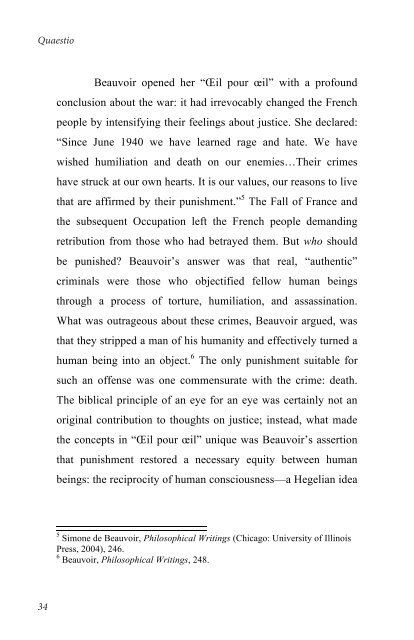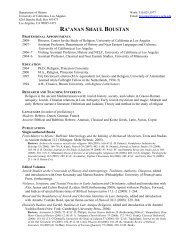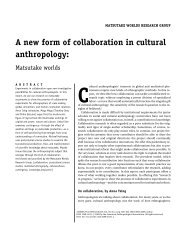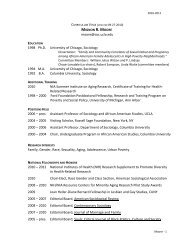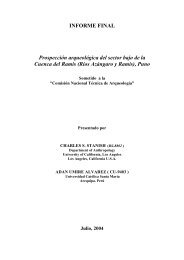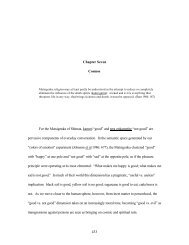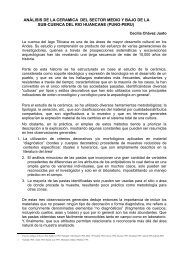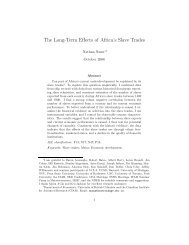QUAESTIO - Social Sciences Division - UCLA
QUAESTIO - Social Sciences Division - UCLA
QUAESTIO - Social Sciences Division - UCLA
You also want an ePaper? Increase the reach of your titles
YUMPU automatically turns print PDFs into web optimized ePapers that Google loves.
Quaestio<br />
Beauvoir opened her “Œil pour œil” with a profound<br />
conclusion about the war: it had irrevocably changed the French<br />
people by intensifying their feelings about justice. She declared:<br />
“Since June 1940 we have learned rage and hate. We have<br />
wished humiliation and death on our enemies…Their crimes<br />
have struck at our own hearts. It is our values, our reasons to live<br />
that are affirmed by their punishment.” 5 The Fall of France and<br />
the subsequent Occupation left the French people demanding<br />
retribution from those who had betrayed them. But who should<br />
be punished? Beauvoir’s answer was that real, “authentic”<br />
criminals were those who objectified fellow human beings<br />
through a process of torture, humiliation, and assassination.<br />
What was outrageous about these crimes, Beauvoir argued, was<br />
that they stripped a man of his humanity and effectively turned a<br />
human being into an object. 6 The only punishment suitable for<br />
such an offense was one commensurate with the crime: death.<br />
The biblical principle of an eye for an eye was certainly not an<br />
original contribution to thoughts on justice; instead, what made<br />
the concepts in “Œil pour œil” unique was Beauvoir’s assertion<br />
that punishment restored a necessary equity between human<br />
beings: the reciprocity of human consciousness—a Hegelian idea<br />
5 Simone de Beauvoir, Philosophical Writings (Chicago: University of Illinois<br />
Press, 2004), 246.<br />
6 Beauvoir, Philosophical Writings, 248.<br />
34


